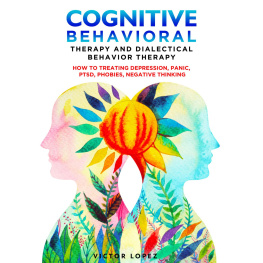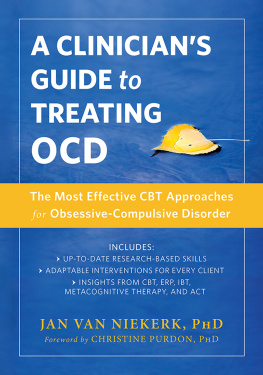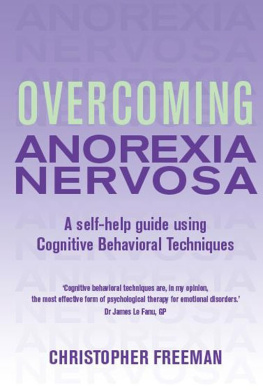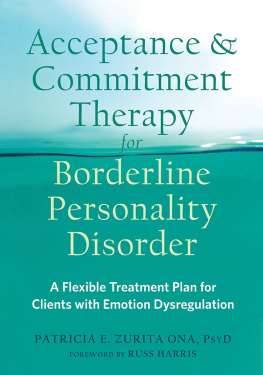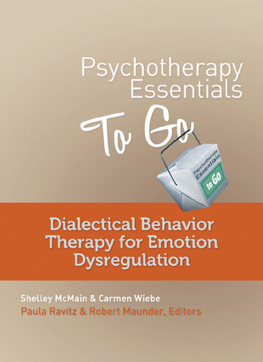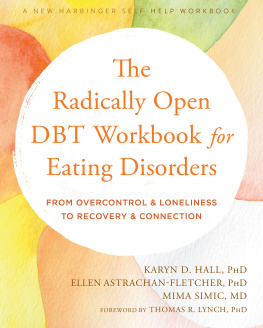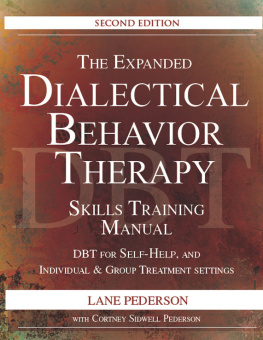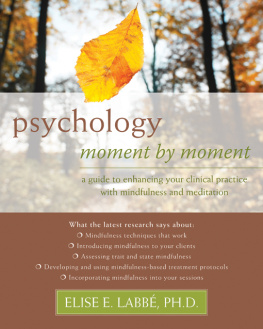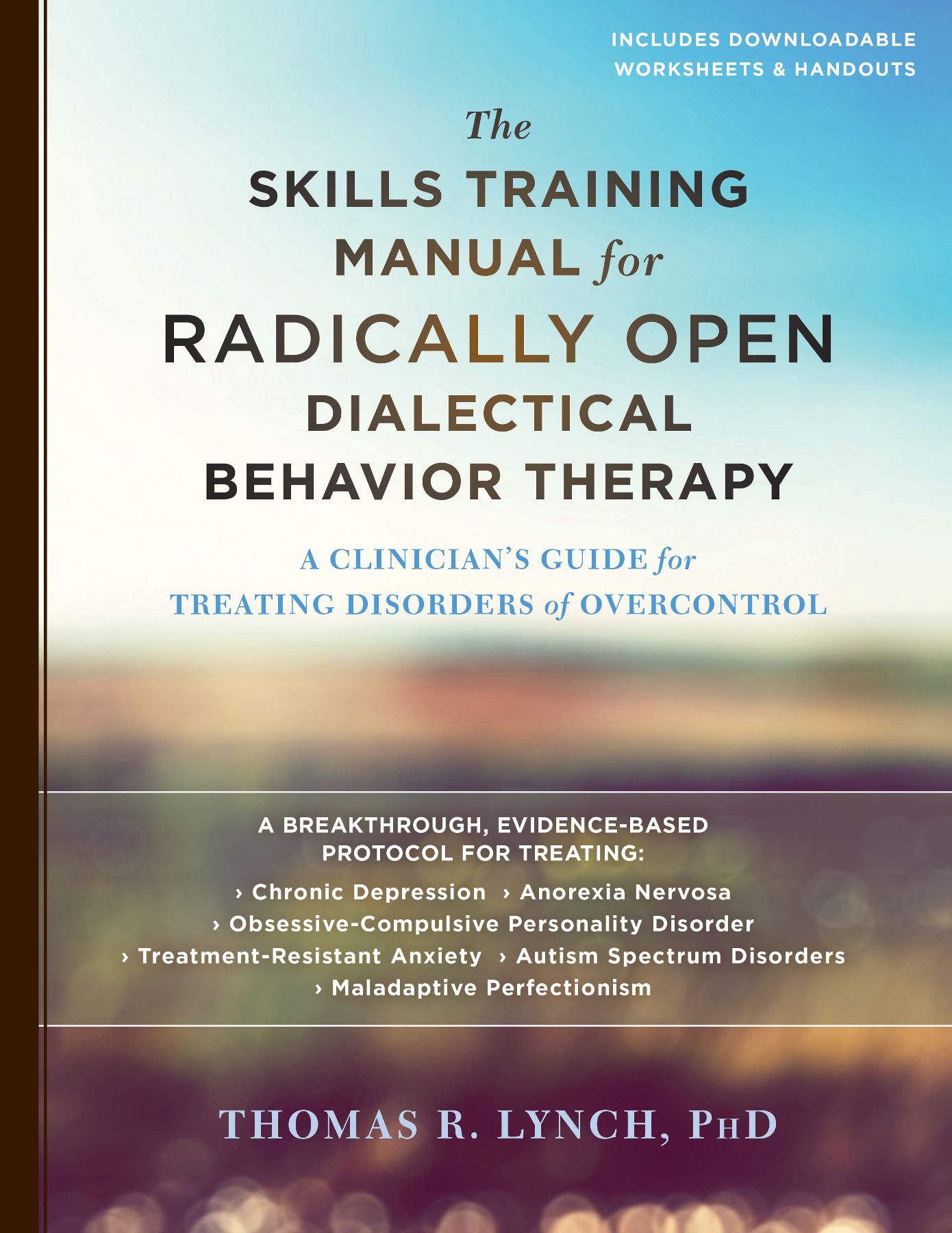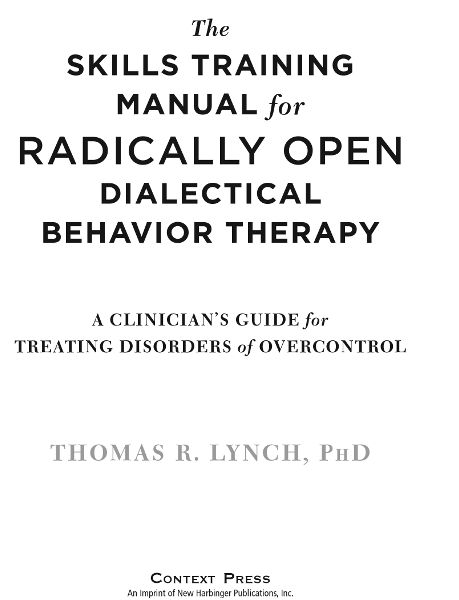Thomas R. Lynch - The Skills Training Manual for Radically Open Dialectical Behavior Therapy: A Clinicians Guide for Treating Disorders of Overcontrol
Here you can read online Thomas R. Lynch - The Skills Training Manual for Radically Open Dialectical Behavior Therapy: A Clinicians Guide for Treating Disorders of Overcontrol full text of the book (entire story) in english for free. Download pdf and epub, get meaning, cover and reviews about this ebook. year: 2018, publisher: New Harbinger Publications, genre: Religion. Description of the work, (preface) as well as reviews are available. Best literature library LitArk.com created for fans of good reading and offers a wide selection of genres:
Romance novel
Science fiction
Adventure
Detective
Science
History
Home and family
Prose
Art
Politics
Computer
Non-fiction
Religion
Business
Children
Humor
Choose a favorite category and find really read worthwhile books. Enjoy immersion in the world of imagination, feel the emotions of the characters or learn something new for yourself, make an fascinating discovery.

- Book:The Skills Training Manual for Radically Open Dialectical Behavior Therapy: A Clinicians Guide for Treating Disorders of Overcontrol
- Author:
- Publisher:New Harbinger Publications
- Genre:
- Year:2018
- Rating:5 / 5
- Favourites:Add to favourites
- Your mark:
The Skills Training Manual for Radically Open Dialectical Behavior Therapy: A Clinicians Guide for Treating Disorders of Overcontrol: summary, description and annotation
We offer to read an annotation, description, summary or preface (depends on what the author of the book "The Skills Training Manual for Radically Open Dialectical Behavior Therapy: A Clinicians Guide for Treating Disorders of Overcontrol" wrote himself). If you haven't found the necessary information about the book — write in the comments, we will try to find it.
Radically open dialectical behavior therapy (RO DBT) is a groundbreaking, transdiagnostic treatment model for clients with difficult-to-treat overcontrol (OC) disorders, such as anorexia nervosa, chronic depression, and obsessive-compulsive disorder (OCD). Written by the founder of RO DBT, Thomas Lynch, this is the first and only session-by-session training manual to help you implement this evidence-based therapy in your practice.
As a clinician, youre familiar with dialectical behavioral therapy (DBT) and its success in treating clients with emotion dysregulation disorders. But what about clients with overcontrol disorders? OC has been linked to social isolation, aloof and distant relationships, cognitive rigidity, risk aversion, a strong need for structure, inhibited emotional expression, and hyper-perfectionism. And yetperhaps due to the high value our society places on the capacity to delay gratification and inhibit public displays of destructive emotions and impulsesproblems linked with OC have received little attention or been misunderstood. Indeed, people with OC are often considered highly successful by others, even as they suffer silently and alone.
RO DBT is based on the premise that psychological well-being involves the confluence of three factors: receptivity, flexibility, and social-connectedness. RO DBT addresses each of these important factors, and is the first treatment in the world to prioritize social-signaling as the primary mechanism of change based on a transdiagnostic, neuroregulatory model linking the communicative function of human emotions to the establishment of social connectedness and well-being. As such, RO DBT is an invaluable resource for treating an array of disorders that center around overcontrol and a lack of social connectednesssuch as anorexia nervosa, chronic depression, postpartum depression, treatment-resistant anxiety disorders, autism spectrum disorders, as well as personality disorders such as avoidant, dependent, obsessive-compulsive, and paranoid personality disorder.
In this training manual, youll find an outline of RO DBT, including history, research, and how it differs from traditional DBT. Youll also find a session-by-session RO DBT outpatient treatment protocol, with sections that outline the weekly, one-hour individual therapy sessions and weekly two-and-a-half hour skills training classes that occur over a period of approximately thirty weeks. This includes instructor guidelines and user-friendly worksheets.
The feasibility, acceptability, and efficacy of RO DBT is evidence-based and informed by over twenty years of translational treatment development research. This important manualalong with its companion book, Radically Open Dialectical Behavior Therapy (available separately), distills the essential components of RO DBT into a workable program you can start using right away to improve treatment outcomes for clients suffering with OC.
Thomas R. Lynch: author's other books
Who wrote The Skills Training Manual for Radically Open Dialectical Behavior Therapy: A Clinicians Guide for Treating Disorders of Overcontrol? Find out the surname, the name of the author of the book and a list of all author's works by series.

